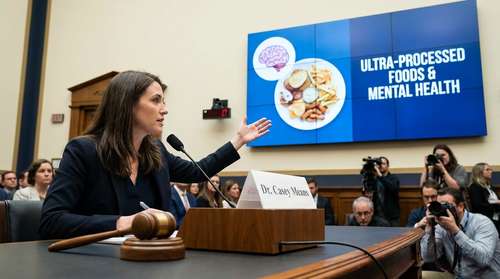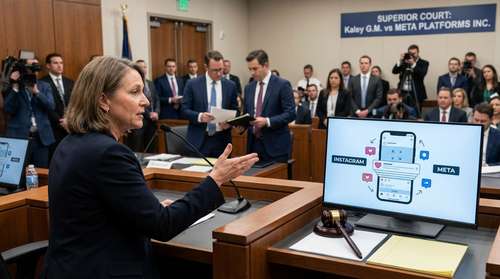The discussion surrounding the potential legal duty for GPs to contact families of suicidal patients has been gaining momentum lately. We’re living in times where healthcare ethics and patient confidentiality are constantly being re-examined in the light of tragic events. Many believe that implementing such a duty could drastically change the way suicide prevention is handled, serving as a potential life-saving measure.
As more families come forward after incidents involving suicidal patients, calls for change have grown louder. The sorrowful losses of Jasy Phipps and Sophie Wood — both of whom sought help from the NHS — have become the catalyst for a broader discussion. This article aims to explore the legal, ethical, and emotional dimensions of this emerging issue.
Understanding the Legal Duty
Let’s break down what we mean by a legal duty in this context. It’s not just about adding another box to tick off but about a fundamental shift in how GPs manage patient care. The idea is to legally mandate that General Practitioners contact a patient’s family when there is a risk of suicide.
This legal duty is linked to patient safety and mental health support. Imagine a scenario where someone is at the edge of despair and even a small gesture from a family can create a network of support. A legal requirement like this could empower GPs to take more bold steps in safeguarding lives, aligning medical ethics with practical measures.
At its heart, the proposal is a call for a more proactive approach to suicide prevention. Advocates believe that by ensuring family notification, there will be higher chances of timely interventions. The argument is simple—when families are informed, they can help monitor the patient’s wellbeing, provide emotional support, and ensure follow-up care in critical times.
Balancing Patient Confidentiality and Family Notification
One of the major challenges in endorsing a legal duty to contact families is the delicate matter of patient confidentiality. Most of us understand that patient confidentiality is a core principle of the healthcare system. However, is it ethical to let this principle stand in the face of potential loss of life?
The argument in favor of notifying families rests on the principle of duty of care. When sensitive information regarding a patient’s suicidal ideation is held, it often leaves GPs in a moral and legal quandary. Should the sanctity of patient confidentiality continue to serve as an impenetrable barrier, or should there be exceptions that allow communication when life is at risk?
Many mental health professionals feel that the balance between confidentiality and proactive safety measures can be navigated with careful communication protocols. This involves ensuring that family members are approached in a way that is respectful and is focused solely on preventing any imminent harm to the patient. In practice, it could look like a GP calling a family member with the intention of offering support rather than accusing the patient of any wrongdoing.
The conversation also extends to medical ethics. While patient trust is essential, it must be weighed against the broader responsibility of safeguarding life. Think about it like a safety net; ensuring that family notification serves as an additional layer of security without breaching the patient’s trust excessively.
Implications for General Practitioners
GPs already carry a significant burden in balancing numerous professional responsibilities. Adding a legal duty to contact families introduces another layer of complexity to their day-to-day tasks. However, the core of GP responsibilities is about patient care and prevention, rather than merely treating symptoms after they escalate.
In the current framework, GPs often rely on their clinical judgment to decide when intervention is necessary. By formalizing the process, it ensures a standardized approach that aligns with the latest healthcare guidelines. For example, if a patient expresses suicidal thoughts during a consultation, the legal requirement could prompt the GP to make a considered decision about contacting family members, reinforcing a duty of care that reaches beyond the confines of the consultation room.
This isn’t just about increasing paperwork; it’s about ensuring that no loophole exists that could potentially delay life-saving support. GPs would have clear directives and protocols, which in turn could foster a sense of security both for the healthcare provider and the family involved. The idea is to turn every consultation into a proactive, preventive measure, focusing on not only immediate mental health support but also long-term family support.
Emotional and Ethical Considerations
When you hear about the tragic losses of Jasy Phipps and Sophie Wood, it’s impossible not to feel the weight of the emotional toll. Their stories resonate with many and serve as stark reminders that sometimes, the current system is not enough. This is where strong family support and open communication could potentially change outcomes.
GPs are in a unique position. They often form the first line of contact in mental health emergencies, making them pivotal players in suicide prevention. By legally mandating family notification, it ensures that families are not kept in the dark when there are signs of grave distress. In many cases, early family intervention can make a world of difference, possibly even saving lives.
Questions arise though—what would this mean for medical ethics and patient autonomy? Would patients feel betrayed if their wishes to keep control over their personal information are overridden? The answer isn’t straightforward, and it calls for robust guidelines that balance legal requirements with compassion. A well-drafted policy can ensure that while families are notified, the patient's voice is not entirely lost.
The aim is clear—it’s to bridge the gap between medical ethics and proactive healthcare responsibility. Getting families onboard means that mental health law could evolve to reflect a more holistic viewpoint, one that values both individual rights and collective safety in times of crisis.
Moving Forward Towards a Safer Healthcare System
The idea of imposing a legal duty for GPs to contact families of suicidal patients is still in its deliberative stages. However, the discussion is paving the way for broader reforms in patient care and suicide prevention. It could eventually influence legal requirements and reshape the communication protocol between healthcare providers and families.
The conversation around GP obligations is reminiscent of other times when legislation and ethics have had to evolve to protect vulnerable populations. It’s a reminder that as medical understanding grows, so must our frameworks for patient support. More than anything, it underscores the critical connection between mental health support and family support. Even a single phone call could turn the tide, transforming a situation from hopelessness to hope.
You might wonder, can legal duty really transform GP responsibilities enough to make a difference? The answer might not come overnight. But the growing awareness and calls for reform suggest that we are on the brink of significant changes, where healthcare responsibility is seen through a lens of both compassion and duty.
This conversation, with its mix of legal, ethical, and emotional threads, is proving to be as complex as it is necessary. It's in situations where every moment counts that bold steps must be taken. By weighing patient confidentiality against a duty to ensure family notification, perhaps we can build a safer, more communicative healthcare system for everyone involved.
In closing, the push for a legal duty for GPs to contact families of suicidal patients challenges us to rethink how mental health is managed. It’s no longer a matter of isolated interventions, but a collective responsibility aimed at saving lives. As debate continues, the importance of clear, compassionate, and legally sound guidelines remains at the forefront of this critical conversation.




